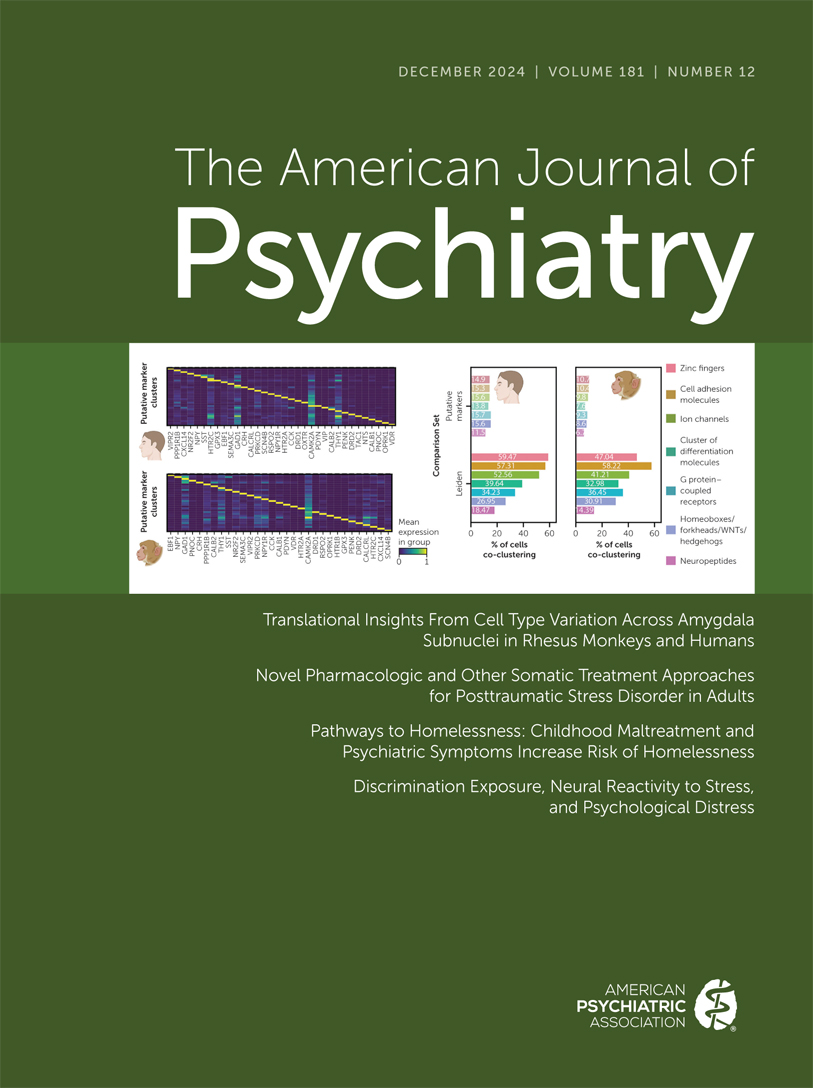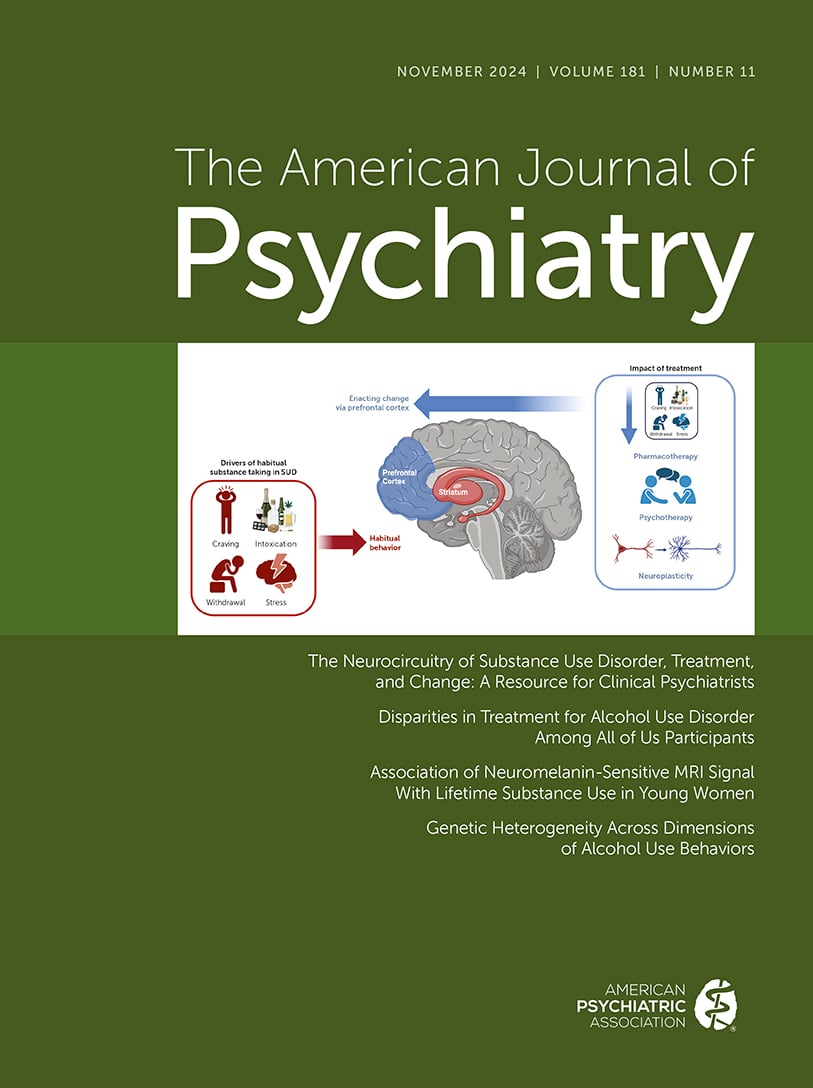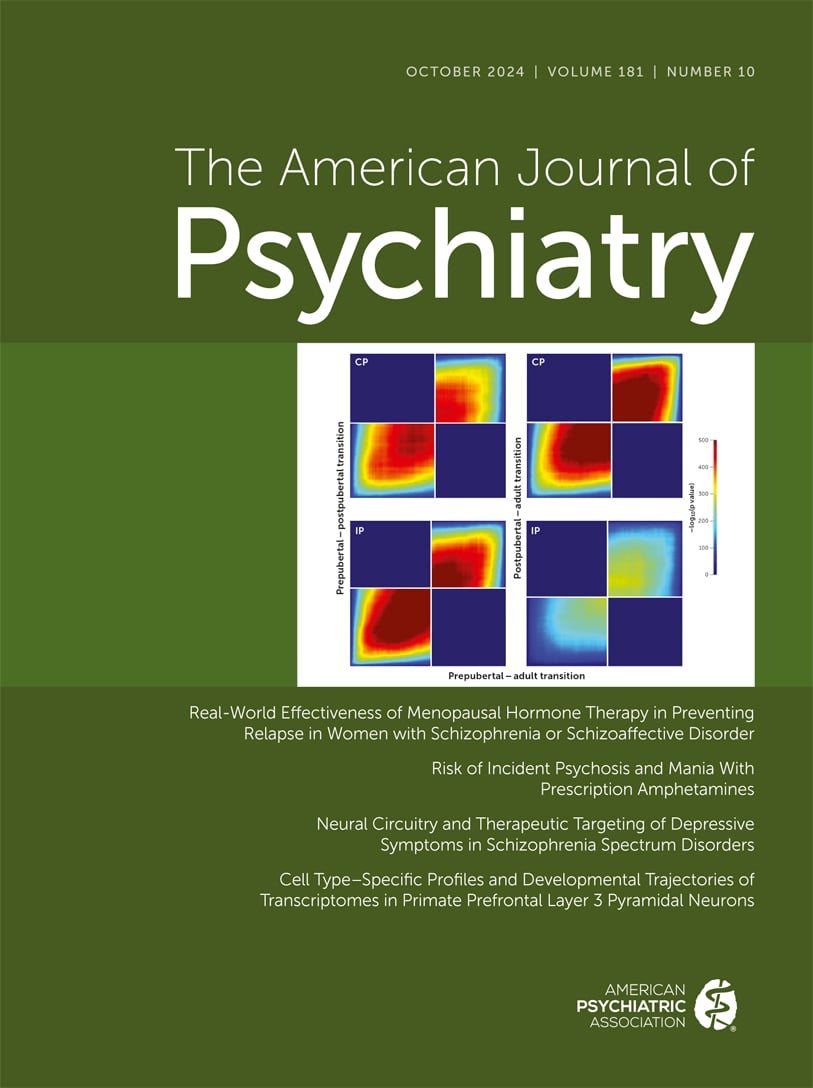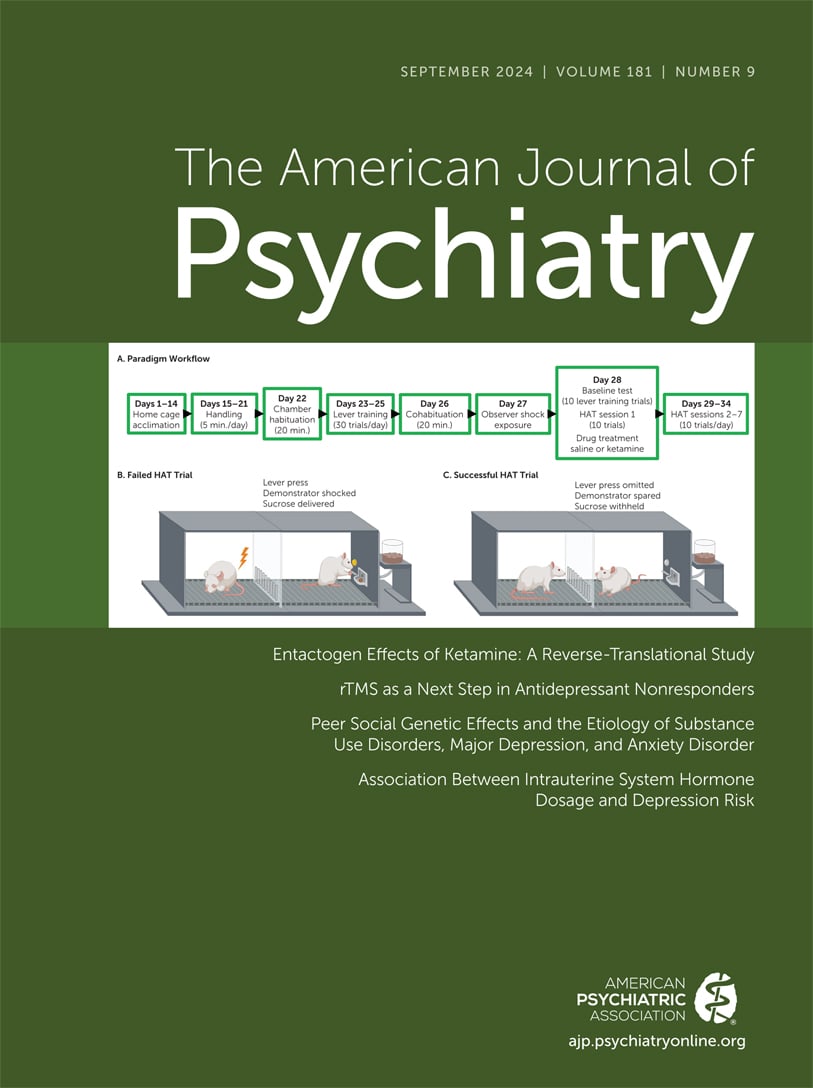American Journal of Psychiatry
- Volume 180
- Number 1
- January 2023
Editor’s Note
Editorials
Review and Overview
Publication date: 07 December 2022
Pages23–40Objective: The aim of this study was to catalog and evaluate response biomarkers correlated with autism spectrum disorder (ASD) symptoms to improve clinical trials. Methods: A systematic review of MEDLINE, Embase, and Scopus was conducted in April 2020. ...
https://doi.org/10.1176/appi.ajp.21100992Articles
Publication date: 24 August 2022
Pages41–49Objective: Numerous candidate EEG biomarkers have been put forward for use in clinical research on autism spectrum disorder (ASD), but biomarker development has been hindered by limited attention to the psychometric properties of derived variables, ...
https://doi.org/10.1176/appi.ajp.21050485Publication date: 23 November 2022
Pages50–64Objective: The male preponderance in prevalence of autism is among the most pronounced sex ratios across neurodevelopmental conditions. The authors sought to elucidate the relationship between autism and typical sex-differential neuroanatomy, cognition, ...
https://doi.org/10.1176/appi.ajp.20220194Publication date: 07 December 2022
Pages65–72Objective: Autism, schizophrenia, and other clinically distinct neurodevelopmental psychiatric disorders (NPDs) have shared genetic etiologies, including single-gene and multigenic copy number variants (CNVs). Because rare variants are primarily ...
https://doi.org/10.1176/appi.ajp.22010062Publication date: 07 September 2022
Pages73–88Objective: Attention deficit hyperactivity disorder (ADHD) is a multifactorial neurodevelopmental disorder, yet the interplay between ADHD polygenic risk scores (PRSs) and other risk factors remains relatively unexplored. The authors investigated ...
https://doi.org/10.1176/appi.ajp.21111105Publication date: 07 December 2022
Pages89–99Objective: Cortical-subcortical hyperconnectivity related to affective-behavioral integration and cortical network hypoconnectivity related to cognitive control have been demonstrated in obsessive-compulsive disorder (OCD); the study objective was to ...
https://doi.org/10.1176/appi.ajp.21111173Past Issues
View Issues Archive
Vol. 181 | No. 12

Vol. 181 | No. 11

Vol. 181 | No. 10
